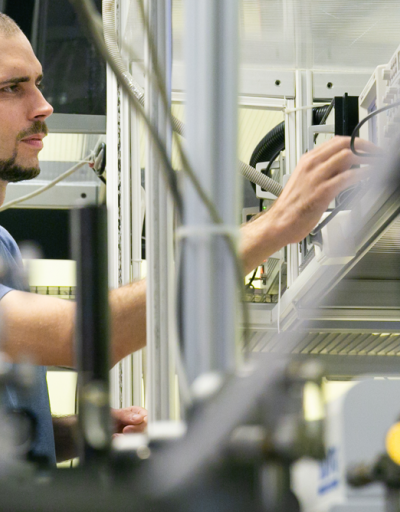In the Russian Federation (chapter 13), the economy remains heavily reliant upon oil, gas, metals, chemicals and agricultural products. There also remains a mismatch between supply and demand with regard to scientific knowledge and technology.
Government intervention since 2015 has demonstrated a willingness to tackle these structural imbalances. This is epitomized by the 13 large-scale national projects to 2024, with total funding of about RUB 26 trillion (ca PPP$ 1 trillion) over six years and a focus on science–industry collaboration.
Priority areas of the National Project for the Digital Economy include quantum technologies and AI. It is complemented by the National Strategy for the Development of Artificial Intelligence covering the years 2020–2030.

The National Project for Science prioritizes the development of megascience facilities and the emergence of a ‘new geography’ of Russian science, with world-class research and education centres to be established in selected regions. The government has also recognized the need to promote a culture of innovation in government structures, to be achieved through specialized training and strategic selection procedures.
Major energy companies have signed up for the government’s National Project for Ecology by investing in green technologies. The use of renewables is being impeded, however, by the centralized management of the energy sector, higher consumer prices and the country’s cold climate. Consumption of coal and petroleum products, as a share of the fuel and energy balance, nevertheless, declined slightly over 2015–2018.
Confronted with a shrinking researcher pool, the government has fulfilled its pledge to raise the renumeration of researchers by 2018. This has helped to attract more researchers under the age of 39 years to the profession.
The Arctic is a strategic focus not only for the Russian Federation but also Canada, China, the European Union and USA. This makes it a hub for science diplomacy. The Agreement on Enhancing International Arctic Scientific Cooperation (2017), signed by the Russian Federation and seven other Arctic States, aims to promote inclusion of local and traditional knowledge, among other aims.
- Figure 13.1: Socio-economic trends in the Russian Federation
- Figure 13.2: Funding and focus of Russian national projects, 2019–2024
- Figure 13.3: Trends in research expenditure in the Russian Federation
- Figure 13.4: Trends in human resources in the Russian Federation
- Figure 13.5: Trends in scientific publishing in the Russian Federation
- Figure 13.6: Trends in innovation in the Russian Federation
- Box 13.1: Russian public has a higher opinion of research profession
- Box 13.2: The Arctic: a new frontier for science diplomacy






